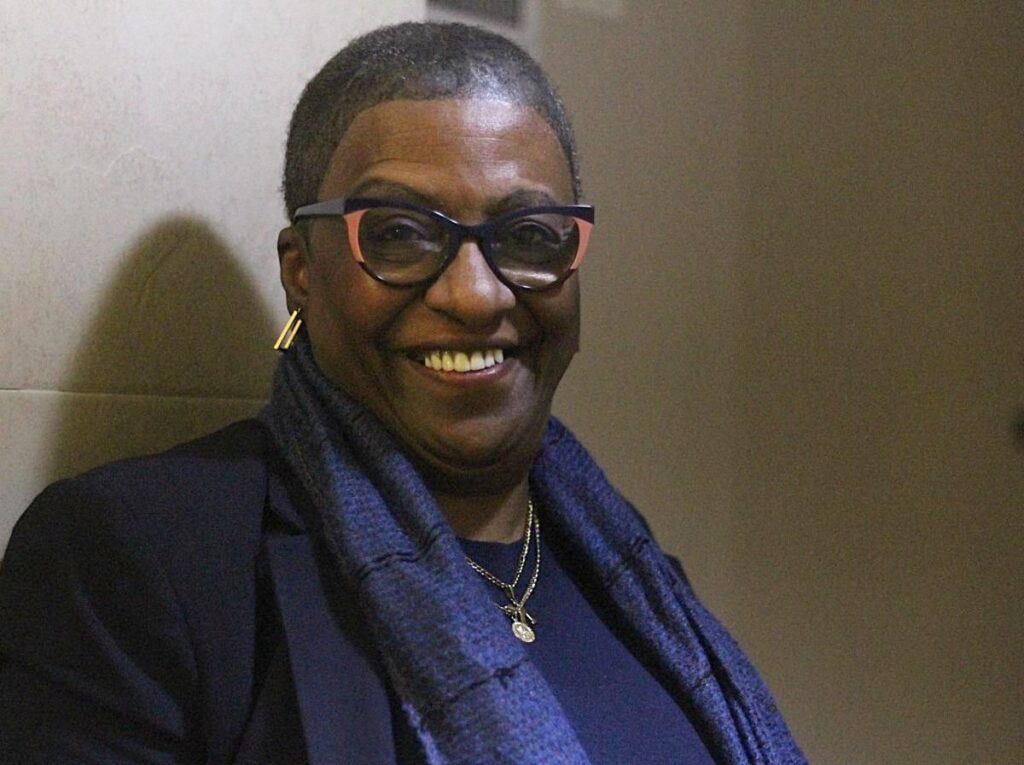
Karenne Berry was taking a taxi to the office recently when she got to chatting with the driver.
“She proceeded to tell me about the challenges that her son had and the challenges she had being a mom and trying to be supportive of him,” Berry recalled. “And then I asked her a few questions. I said, ‘I’ll see if one of my team members can support you.’”
She called the head of youth services for Goddard Riverside and hooked them up. It was all in a day’s work for Berry, who says “people in our field are just naturally people-supporters, we want to help people and guide them.”
It’s this kind of boundless energy for the work that helped win her recognition on City and State Magazine’s 2025 Black Trailblazers list.
As Chief Program Officer, Berry oversees all our programs at Goddard Riverside and our partner, the Stanley M. Isaacs Neighborhood Center. Not coincidentally, she’s also a nationally-recognized expert on the “whole family” or multi-generational approach to social services. The idea behind multi-gen, as it’s called, is that you can more effectively help people lift themselves from poverty if you work with entire families instead of individuals.
Berry got interested in the model while working at the Educational Alliance, a fellow settlement house in NYC. She noticed that the same families were enrolling in their Head Start program, generation after generation—even though Head Start is intended to set children on the path to a brighter future.
“Lots of the research shows that if you invest in the whole family, then the children are more likely to keep the gains that you’re supposed to get from Head Start,” she said.
“We know that building strong families means strong communities.”
Berry got intensive training in multi-gen work and became part of a loose national network of nonprofit leaders, academics and social scientists working to develop the model. She coaches programs across the country and has spoken at numerous state and national conferences. Now she’s helping transform Goddard, with the goal of offering a multi-gen approach in every program.
That work has begun at our Resource Center, where staff are meeting with families and asking each member to identify a goal they want to achieve. “Some folks feel like there’s a ceiling—there is no ceiling,” said Berry. “This is not just to help someone get an associate’s degree. It’s to help them go as far as they have the potential to go.”
When she’s not blazing new trails in social services, Berry takes an active interest in developing the staff of the programs she oversees. “That’s really important to me,” she said. “I run into a staff member and I’m like, ‘OK, why are you stagnant? Do you need to do something else? You have potential and we are going to push it.’ And then I always say to them, in five years from now, you’re going to be pushing someone else. It has to be a cycle in order for folks to move forward.” Always a trailblazer, she hopes to leave many more trailblazers in her wake who go the extra mile to strengthen families and communities.